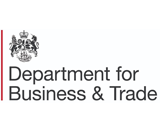The BBC's One Show exposes 'free-trial' scams
The BBC's the One Show covered 'free-trial' scams, also known as subscription traps last Tuesday evening on 1 December at 7pm.
The show featured an interview with Mike Andrews, the national coordinator for the National Trading Standards eCrime Team, who are co-ordinating the crack-down on free-trial scams along with Citizens Advice and other consumer protection partners. You can get the details about the program from One Show's website and if you missed it catch it on iPlayer. Look for the link for the program shown on the 1 December.
Citizens Advice estimate so-called ‘free trial’ slimming pill scams have cost UK consumers around £1 million in the financial year of 2014-15 alone. Free-trial scams have spread into many other product areas, and consumers are likely to lose more money to this scam in the long run.
Subscription traps work by tempting people with free-trials for slimming pills and other related ‘health’ type products, such as anti-wrinkle and anti-aging creams, skin cleansing products, muscle gain or growth, teeth whitening, and hair growth products to name but a few.
People are duped into giving their credit card or debit card details to pay for up to £5 of postage and packing. Scammers use a variety of tricks to secure the right to take monthly subscriptions for these products out of consumers' bank accounts. The right to do this is often buried in small and detailed terms and conditions that consumers often accept without knowing they have given that right to a scammer.
These terms and conditions sometimes come with a pre-ticked acceptance box, or an implicit acceptance that in placing an order the consumer accepts the T & Cs. Then by agreeing to the T&Cs people effectively end up in a contract with the seller and often unwittingly agree to what is called a ‘continuous payment authority’ (CPA). This is just the technical term for taking regular payments out of your bank account without having to ask you each time.
In a recent YouGov survey of just over 2,000 adults just 21% knew the difference between a CPA and a direct debit. These payments can, in theory, be for any amount of money taken at a time a scammer chooses. Many traders either misuse CPAs or use them to scam consumers out of significant sums of money that they can’t afford to lose.
You can read more about this problem in the blog post: 'Think you’re getting a ‘free trial’? Fat chance!' on the Citizens Advice website and from the infographic below this article.
The National Trading Standards eCrime Team are part of National Trading Standards.







